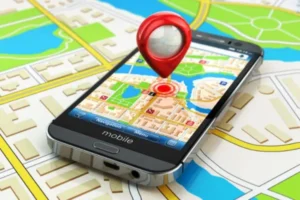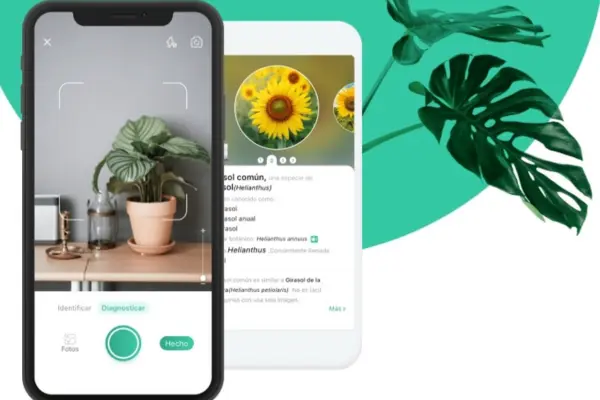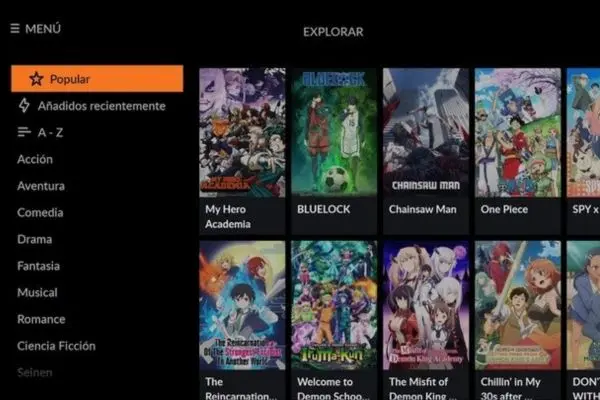Anúncios
Learn how a free GPS app works for routes and tracking. Discover detailed features, benefits, pros and cons, and whether it’s worth downloading.
How Does a Free GPS App Work?
Free GPS apps rely on the Global Positioning System (GPS), a satellite-based navigation technology that determines your exact location on Earth.
Your smartphone or tablet communicates with a network of at least 24 satellites orbiting the planet.
These satellites send signals that your device receives, calculating your position through a method called trilateration.
Trilateration works by measuring the distance between your device and three or more satellites.
By intersecting these distances, the app determines your precise geographic location.
This location data is then displayed on digital maps, enabling navigation and tracking.
Modern GPS apps go beyond simple positioning.
They integrate real-time traffic updates, weather conditions, and even public transit schedules to offer comprehensive navigation solutions.
Some apps also support offline maps, allowing users to navigate without an internet connection.
This functionality is particularly useful for travelers in remote areas or regions with limited network access.
Additionally, GPS apps can track your movement, record trip history, and provide analytics for personal or professional use.
The integration of advanced features like augmented reality and voice-guided navigation makes these apps indispensable tools for various tasks.
From directing drivers to their destinations to helping fitness enthusiasts track their runs, GPS apps have revolutionized how we navigate the world.

Features of Free GPS App
Free GPS apps are packed with features that cater to both casual users and professionals. Below is an in-depth look at what these apps typically offer:
Navigation and Route Planning
One of the primary functions of GPS apps is to provide accurate navigation.
Users can input their starting point and destination to receive step-by-step directions.
These apps calculate the most efficient route based on real-time traffic conditions and user preferences.
Some apps even offer alternate routes, giving users the flexibility to avoid tolls, highways, or traffic jams.
You can choose modes of travel, such as walking, biking, driving, or using public transit.
For long trips, the apps display estimated arrival times and distance, helping users plan their journeys better.
Real-Time Traffic Monitoring
Free GPS apps integrate live traffic data to help users avoid delays.
They analyze data from other app users, traffic sensors, and local authorities to provide up-to-date information on road conditions.
This includes details about traffic jams, accidents, road closures, and construction zones.
By offering alternate routes, these apps save time and reduce frustration during commutes.
Offline Maps
Many GPS apps allow users to download maps for offline use.
This feature ensures uninterrupted navigation in areas with poor or no internet connectivity.
Users can pre-load maps for specific regions, making these apps ideal for road trips and international travel.
Offline maps often include landmarks, routes, and points of interest, ensuring comprehensive navigation even without an active internet connection.
Points of Interest (POI)
Most GPS apps come with a built-in database of points of interest.
These include restaurants, gas stations, hotels, tourist attractions, and more.
Users can search for nearby amenities and navigate to them with ease.
Some apps also offer reviews and ratings for these locations, helping users make informed decisions.
Voice-Guided Navigation
Voice guidance is a standout feature that provides step-by-step instructions.
This hands-free approach ensures safety, especially while driving, as users don’t have to constantly check their screens.
The instructions include alerts for upcoming turns, lane guidance, and notifications for recalculated routes.
Location Tracking and Sharing
GPS apps also excel in tracking and sharing location data.
This is useful for parents monitoring their children’s whereabouts or businesses managing delivery fleets.
Users can also share their live location with friends or family for added safety during trips.
Trip History and Analytics
Some apps log trip details, such as distance traveled, average speed, and travel time.
Fitness enthusiasts use these features to track runs or bike rides, while professionals rely on them for mileage tracking and reporting.
Pros and Cons of Free GPS Apps
Free GPS apps come with numerous advantages, but there are also some limitations to consider.
Pros
- Cost-Free Navigation:
The most obvious benefit is that these apps are free to download and use. - Real-Time Updates:
Live traffic data and weather conditions help users plan efficient routes. - Offline Capabilities:
Downloadable maps ensure navigation works even without internet access. - Multi-Functionality:
Suitable for drivers, walkers, cyclists, and even fitness tracking enthusiasts. - Ease of Use:
Intuitive interfaces make these apps accessible to users of all ages and skill levels. - Environmental Benefits:
Efficient route planning reduces fuel consumption, lowering carbon footprints.
Cons
- Ad-Supported Models:
Many free GPS apps include ads, which can be intrusive at times. - Battery Drain:
Continuous GPS usage can deplete your device’s battery quickly. - Privacy Concerns:
Some apps collect user data for advertising purposes, raising privacy issues. - Internet Dependence:
While offline maps help, some features require an active internet connection. - Occasional Inaccuracies:
Real-time traffic data might not always reflect current conditions.
Despite these drawbacks, free GPS apps remain highly practical for everyday use.
User Reviews and Feedback
User reviews for free GPS apps highlight their effectiveness and convenience.
Positive feedback often focuses on features like real-time traffic updates, easy-to-use interfaces, and offline navigation.
Drivers appreciate the apps’ ability to suggest alternate routes during rush hour or roadblocks.
Fitness enthusiasts value the tracking features for monitoring runs, walks, and cycling activities.
However, some users express frustration with frequent ads in free versions and the occasional inaccuracies in location data.
Battery consumption is another common concern, especially for users on longer trips.
Overall, the majority of reviews praise these apps for their reliability and usefulness, especially considering they are free.
Do Free GPS Apps Collect Personal Data?
Yes, most free GPS apps collect personal data to enhance their functionality.
Location data is the most commonly collected information, as it is essential for providing navigation and tracking services.
Additionally, some apps collect device information, search history, and user preferences for targeted advertising.
Reputable apps are transparent about their data collection practices and include privacy policies detailing how the information is used.
Users can typically control data sharing through app permissions and privacy settings.
It’s important to review these settings carefully and only grant permissions that are necessary for the app’s functionality.
Are Free GPS Apps Safe to Use?
Free GPS apps are generally safe to use, provided they are downloaded from official sources like the Google Play Store or Apple App Store.
These platforms ensure that apps meet security standards and are free from malware.
To enhance safety, users should:
- Regularly update the app to receive security patches.
- Avoid downloading apps from unofficial websites.
- Check app permissions and limit unnecessary access to personal data.
Well-known apps like Google Maps, Waze, and Apple Maps are trusted by millions and maintain high safety standards.
By following these precautions, users can safely enjoy the benefits of free GPS apps.
Importance of a Free GPS App
Free GPS apps are essential tools that simplify navigation and improve daily life.
They provide real-time directions, help avoid traffic, and even offer offline maps for remote areas.
For commuters, GPS apps save time by suggesting faster routes.
Travelers can explore new places with ease, finding nearby attractions, restaurants, and accommodations.
Businesses use GPS apps for route optimization and fleet tracking, boosting efficiency and reducing costs.
Fitness enthusiasts track their activities, like running or cycling, to achieve personal goals.
These apps also enhance safety, allowing parents to monitor their kids or helping in emergencies by sharing locations.
With voice-guided navigation, they ensure hands-free travel, promoting safer driving.
By identifying efficient routes, GPS apps contribute to fuel savings and a lower carbon footprint.
Best of all, they are free, accessible, and user-friendly, making them an indispensable part of modern life.
Whether for personal, professional, or recreational use, free GPS apps are a game-changer for staying connected and navigating with confidence.
Is It Worth Downloading a Free GPS App?
Free GPS apps are undoubtedly worth downloading for their convenience and functionality.
They simplify navigation, reduce travel stress, and provide tools for tracking and planning.
For those who frequently travel or need efficient route management, these apps are invaluable.
While premium features in paid apps may offer added benefits, the free versions are more than sufficient for most users.
Whether you’re exploring a new city, managing deliveries, or tracking fitness goals, free GPS apps provide reliable solutions.
Their versatility and cost-effectiveness make them an essential tool for everyday life.
If you value convenience, safety, and efficiency, downloading a free GPS app is a decision you won’t regret.















